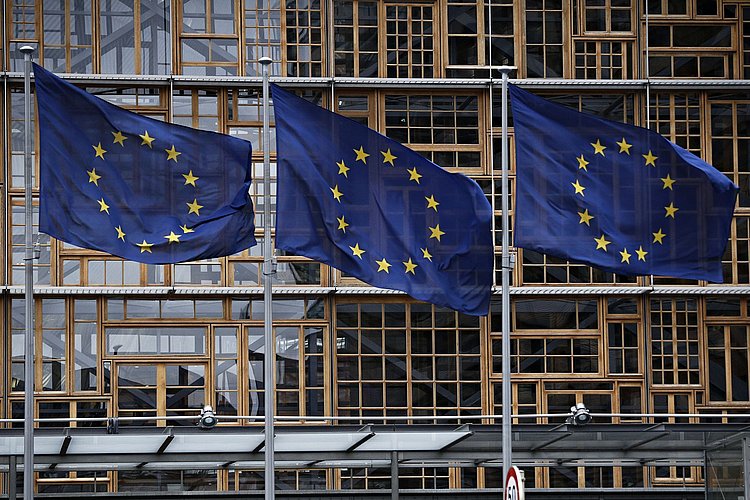Overview of European Court Cases
Upate State Aid April 2020
In recent months, the European courts have again decided numerous cases on state aid law. The following cases deal with antitrust law claims for damages for granting authorities, the effects of changes to the legal basis in state aid proceedings and the access to files in accordance with Regulation (EC) No. 1049/2001 in state aid proceedings.
ECJ, Case C-435/18 - Cartel damages claim for "anyone" - including funding bodies
The decision of the ECJ in Case C-435/18 of 12 December 2019 highlights the connections between cartel and state aid law. The procedure is based on a submission by the Austrian Supreme Court. It is a follow-on claim for damages brought by the State of Upper Austria against the participants in the elevator cartel. The State of Upper Austria did not claim damages as a direct or indirect customer, but in its capacity as an institution awarding subsidies. Upper Austria subsidises the construction costs of certain housing construction projects to a certain percentage. The State argued that the construction costs were excessive due to the cartel, which led to higher state loans than necessary. The damage was due to the lower interest percentage of these loans compared to an investment of the funds in federal bonds.
The ECJ takes the view that a connection between the cartel infringement and the damage is sufficient to affirm a claim; a connection between the damage and the protective purpose of Art. 101 TFEU (prohibition of cartels) is not necessary, however. This is because the protection of competition pursued by Art. 101 TFEU does not require that the injured party suffers damage only by market participation. Therefore, the claimant for damages does not have to be active in the market affected by the cartel as a supplier or buyer. Whether the State of Upper Austria has actually suffered a damage and whether the necessary proof of a causal connection between the cartel and the damage has been provided, must now be examined by the Austrian Supreme Court.
With this decision, the ECJ continues its case law that "everybody" suffering a damage by cartels can claim compensation. It extends the right to compensation for damages to granting authorities which were neither directly nor indirectly customers of the cartel. The ECJ has thus considerably extended the group of persons entitled to claim damages.
It remains to be seen whether the State of Upper Austria will actually be awarded damages following this decision. While in many cases of private enforcement in Germany courts have decided that a claim for damages is given in principle, many questions of the amount of damages are still unresolved. Due to the financial expense of private enforcement, the damage suffered by the funding body must be considerable in order to justify the expense and risk of a follow-on action.
ECJ, Case C-56/18 - Change of legal basis does not automatically render a decision void
By its decision of 11 March 2020 (Case C-56/18), the ECJ annulled a decision of the General Court (Case T-263/15) concerning state aid granted to Gdynia-Kosakovo airport. In the decision to open the procedure in 2012 and in a decision in 2014, which has since been revoked and replaced, the European Commission had referred to the Guidelines on National Regional Aid for 2007-2013 (2006/C 54/08) and to Article 107 (3) (a) TFEU as a legal basis. In the decision concluding the proceedings in 2015, the European Commission referred to the Guidelines on State aid for airports and airlines (2104/C 99/03) and to Article 107(3) (c) TFEU. As an interested party – only the EU Commission and the Member State are parties to the legal dispute – the company concerned was not invited to provide a statement on the amended legal basis in the proceedings.
The ECJ considers the omission of a hearing of the company concerned – which is required by Article 108 (2) TFEU – to be a procedural error. However, such a procedural error only leads to the full or partial annulment of the decision if the contested decision could have had a different meaning without the infringement. The existence of differences between the legal rules on which the parties were heard and those on which the decision is ultimately based does not in principle lead to the annulment of the decision. Contrary to the opinion of the General Court, the amendment must – with regard to the provisions in dispute in each case – have affected the meaning of that decision. If, also on the basis of the new regulation, the same result as the previously annulled decision is reached – in this case the incompatibility of a state aid with European state aid law – failure to request a statement by the company concerned does not lead to the annulment of the decision. The same applies if the decision is based on an autonomous legal basis which is unchanged and which alone bears the contested decision.
With this decision, the ECJ makes clear that failure to hold a hearing does not automatically result in the (complete or at least partial) annulment of a decision of the EU Commission. This case law is based on a feature of EU state aid law that the party to the dispute is the Member State as the body providing the aid, while the company receiving aid is not a party. The company concerned may thus be restricted in an efficient defence, as it is only entitled to rights of participation and the Member State may also pursue interests other than those of the company concerned.
General Court, Case T-168/17 - Access to file under Regulation 1049/2001 in State aid proceedings
In its decision of 30 January 2020 (Case T-168/17), the General Court decided that documents of a state aid procedure are confidential and need not be made accessible in the context of a claim of access to files without an overriding public interest.
The claimant has initiated state aid proceedings against a competitor and – when the EU Commission expressed the intention to discontinue the proceedings – requested access to the file based on Regulation No. 1049/2001, which the EU Commission rejected. The ECJ confirmed a presumption of confidentiality of documents in state aid proceedings. This presumption applies at least until the formal conclusion of the proceedings (as well as afterwards if an action against the decision on the merits is pending). The intention of an action for damages – based on an infringement of competition law – is not sufficient to affirm an overriding public interest. The applicant had to explain the necessity of the access to files in detail so that it could be weighed against the general assumption confidentiality. Also, Art. 42 of the Charter of Fundamental Rights of the EU does not grant unrestricted access to the files.
The provisions of Regulation No. 1049/2001 are regularly relevant in European competition law. For potential claimants, the access to files is an important tool for a better assessment of the enforceability of a claim for damages. The EU Commission still handles requests for access to files very restrictively and makes it difficult for potential claimants to assess their case.









